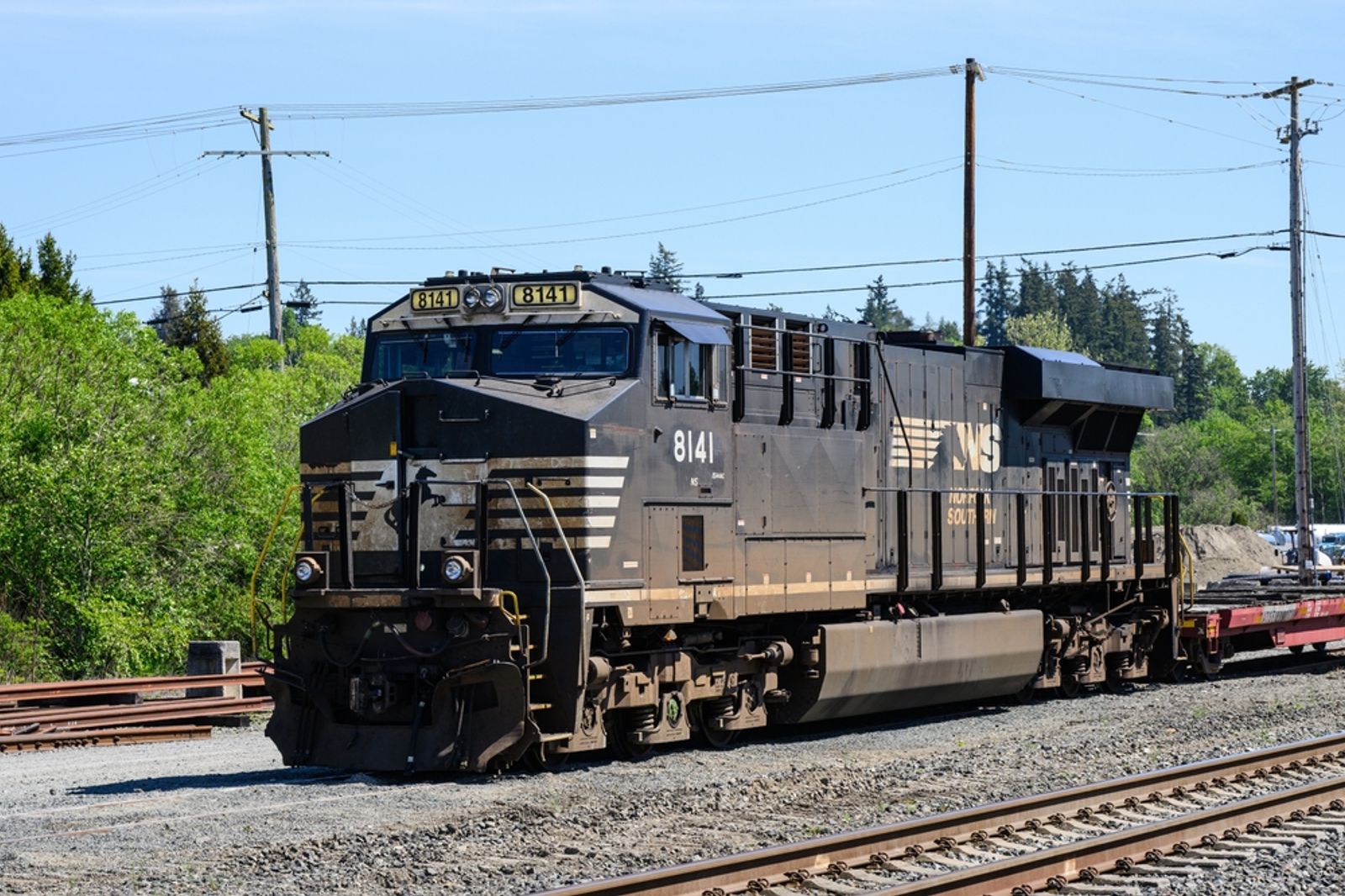![]()

Norfolk Southern Railway (NS) has introduced a new program aimed at helping shippers measure and reduce their supply chain emissions by transporting goods via rail instead of truck.
The initiative, called RailGreen, will allow intermodal customers to purchase verified carbon certificates reflecting their use of lower-emission freight options. The certificates, known as environmental attribute certificates (EACs), can be used in corporate sustainability reports and filings related to so-called Scope 3 emissions, which are indirect emissions from a company's supply chain.
Shippers can sign up for RailGreen either directly through Norfolk Southern or via intermodal partners such as Hub Group, J.B. Hunt Transport Services, Swift Intermodal or non-asset-based intermodal marketing companies.
The railroad is partnering with 123Carbon, a Netherlands-based firm that specializes in emissions tracking using blockchain technology. The company ensures transparency and traceability of each ton of reduced carbon dioxide equivalent (CO₂e) through certificates that are independently verified and meet international sustainability auditing standards, according to the railroad.
“Data is very important and that's why we've engaged with 123Carbon blockchain technology to create a transparent, verifiable emissions reduction program that shippers can count on using international standards for calculations,”Josh Raglin, NS'chief sustainability officer, told the Journal of Commerce Monday.“Even though we've been reducing our Scope 1 emissions from using biodiesel, we have not had a way to pass that information along to our customers.”
RailGreen will use a“book-and-claim system”functioning similarly to renewable energy credits. Even if a shipper's individual container doesn't directly benefit from biofuel use, the emissions reductions are pooled across the network and attributed through verified certificates. For example, renewable energy credits don't track how much clean energy is powering a specific building, but a company can still support the use of greener power overall and can claim the benefit.
RailGreen does the same for freight transportation.
“We don't have a way to track the biofuel at the shipment level,”Raglin said.“We can't say,‘these molecules were used for your shipment versus another.’What we do is called mass balancing.”
Norfolk Southern has doubled its use of biofuel blends with ultra-low sulfur diesel in the last two years. Biofuels, which are produced from sources such as soybeans, waste vegetable oil, woody biomass and algae, emit fewer greenhouse gases than traditional fossil fuels.
According to Raglin, over 20% of NS'fuel included a biofuel blend, resulting in roughly 9 million gallons of biofuels used.
Other efforts to make railroading greener
Norfolk Southern is not alone in investing in lower-emission rail technologies.
CSX Transportation unveiled a hydrogen-powered locomotive in April 2024, developed in partnership with Canadian Pacific Kansas City. The prototype is being tested for performance and feasibility.
Meanwhile, NS, BNSF Railway and Union Pacific are piloting hybrid-electric locomotives, which operate similarly to hybrid cars.
Raglin likened the hybrid locomotives to a 200-ton Toyota Prius, noting that they run primarily on battery power but include a small diesel engine for recharging when needed or can be plugged in at a station.
NS has also invested in modernizing nearly 1,000 locomotives since 2016 and is upgrading intermodal cranes to hybrid or fully electric models to further reduce emissions.

